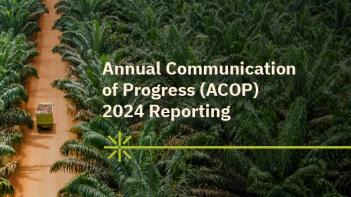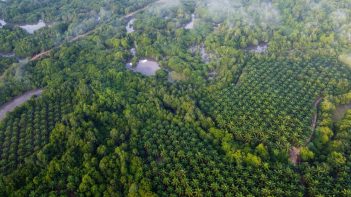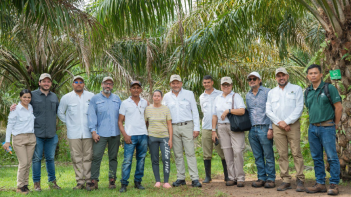RSPO acknowledges that issues such as deforestation, labour rights, and damaging effects on nature and the environment are not uncommon in the agricultural sector, including palm oil. Moving away from one commodity to another does not eliminate these issues. Iceland supermarket may in fact be exacerbating customers’ confusion about the issue, and potentially contributing to tropical deforestation. A recent IUCN report stated that switching to other vegetable oils may very well result in more primary forests being converted into agricultural land, not less. This is confirmed also by the WWF Germany report, “Searching for alternatives”.
There are many drivers of deforestation. While increasing awareness is important, not engaging for lasting change in a supply chain is shortsighted. Deforestation is not a marketing gimmick, it is an urgent issue which producers and consumers can address by working together to improve the supply chains and making sustainable commodities, including palm oil, the norm.
Comment by Darrel Webber, RSPO’s Chief Executive Officer, RSPO
“What if we were to discover that palm oil is replaced by butter from cows fed with unsustainable soy grown at the expense of Amazon forest instead? If Iceland want to guarantee that their oils and fats sourcing is not causing rainforest destruction, they should work with the rest of the supply chain to promote the use of sustainable standards, such as RSPO, with a view to improve the sustainability of the entire market.”
-ENDS-
About RSPO
The Roundtable on Sustainable Palm Oil (RSPO) was formed in 2004 with the objective of promoting the growth and use of sustainable oil palm products through credible global standards and engagement of stakeholders. RSPO is a not-for-profit association that unites stakeholders from the seven sectors of the palm oil industry including oil palm producers, palm oil processors or traders, consumer goods manufacturers, retailers, banks and investors, environmental or nature conservation NGOs, and social or developmental NGOs.
This multi-stakeholder representation is mirrored in the governance structure of RSPO, such that seats in the Board of Governors, Steering Committees and Working Groups are fairly allocated to each sector. In this way, RSPO lives out the philosophy of the "roundtable" by giving equal rights to each stakeholder group, facilitating traditionally adversarial stakeholders in working together to reach decisions by consensus, and achieving RSPO’s shared vision of making sustainable palm oil the norm.
The seat of the association is in Zurich, Switzerland, while the secretariat is currently based in Kuala Lumpur with satellite offices in Jakarta (ID), London (UK), Zoetermeer (NL), Beijing (CN) and Bogotá (CO).
The RSPO has more than 4000 members from 91 countries, who represent all links along the palm oil supply chain. They have committed to produce, source and/or use sustainable palm oil certified by the RSPO.
For further information, kindly contact:
RSPO European team: [email protected]
RSPO Media team: [email protected]
Keep reading
Carry Over Credits for Certified Independent Smallholders Group

Latin American Smallholders and Global Brands met in the Peruvian Amazon to Advance Sustainable Palm Oil

From the Amazon to the Aisles: Discovering Sustainable Palm Oil in the Heart of Peru

Global Trends of Sustainable Palm Oil and China's Pathway

Final list of ACOP 2024 Non Submitters

New ISEAL Case Study Identifies Pathways to EUDR Compliance in Palm Oil Sector
Call for Expression of Interest: Nigeria National Interpretation Task Force for 2024 RSPO Principles and Criteria (RSPO P&C) and Independent Smallholder (ISH) Standard

From Cocaine Processing to Cultivating Palm Oil: Resilience takes root in a Colombian community




